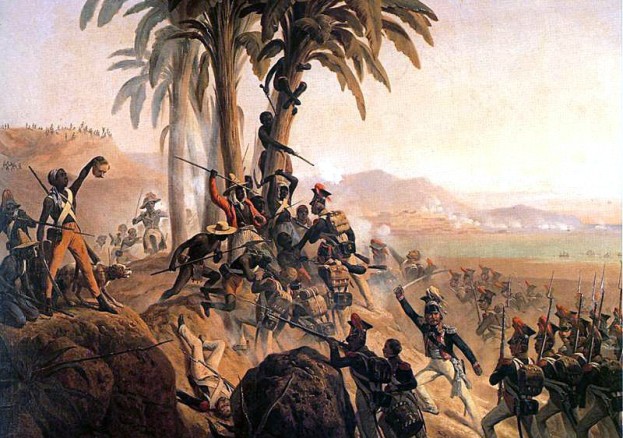
Black History Month remembers a few times one of the Caribbean Islands repelled ‘a threat greater than itself’.
-
Haiti 1804
Haiti’s many victories during its 13 year war with a number of colonial powers could fill this list, as between 1791 and 1804, Haiti, under the leadership of Toussaint l’Ouverture, repelled the French Army twice, The Spanish Army and the British before finally being recognised as a nation independent of any Colonial power and the first nation to abolish slavery.
Haiti’s many victories against European powers would make it the first and oldest ‘Black’ Republic and the second oldest in the western Hemisphere, second only to the United States of America.
2. Cuba 1898
The third of Cuba’s liberation wars against the Spanish had ended in two prior defeats in the Ten Years war and the Little War of 1868-1879 and 1879-1880 respectively.
Whilst reasoning for the war was as simple as wanting to gain independence, the trade and geographical importance of Cuba for Spain meant it would be a vital point for Spanish traders going south into Latin-America, or North into the southern States of what is now America.
It is for this reason that the then, newly formed United States joined in support of Cuba to help gain its independence from Spain, dubbing the final three months of the Cuban Spanish war, the Spanish-American War.
3. Cuba 1961
The shortest ‘war’ on this list features Cuba and America in the Bay of Pigs invasion of 1961.
Designed to overthrow the growing influence of Fidel Castro’s Communist Government. The US government trained 430, previously exiled Cuban Men under the sponsorship of the CIA as a counter-revolutionary, paramilitary group who invaded the ‘Bay of Pigs’ on 17th April, 1961.
The attempted coup was repelled within three days under the leadership of the then Prime Minister, Fidel Castro. The incident would later go on to create further tension between the US, Cuba and Russia.
4. Trinidad 1498-1592
Despite much of Trinidad being divided and split amongst the many Spanish settlers in 1592, it is the period of nearly 100 years before it which marks a significant footnote of native resistance against foreign invasion.
Christopher Columbus’ first steps in 1498 on the island of Trinidad would be the reason hundreds of Spanish Soldiers and Privateers made their way to the Island, reaching Trinidad’s southern shores in the 1530’s.
It was the intent of Spanish Soldier, Antonio de Sedeño, which marked the first of many battles between the free Amerindians and the Spanish who wanted to enslave them, with the Amerindians seeming to be ever resilient against increased pressure from Spain for over 70 years, adopting a guerrilla warfare style approach against the growing number of Spanish fighters settling in Tobago.
The Spanish would eventually win and settle their first fort in 1592, after many of the Native people either left the island or adopted Spanish rule through culture; such as adopting Christianity.
5. Antigua
Antigua was only under the Spanish gaze for all but a short time, with some historians claiming that the only reason Antigua was not colonised was because it lacked Fresh Water, not because the inhabitants of the Island were hostile.
In any case, documents around the early 1500’s are filled with instances of the Spanish attempting to interact with the Carib people in Antigua, with many documenting cases of Cannibalism amongst their superior Hunting and Fishing capabilities.
Another dispute to the claim is that the British very quickly colonised Antigua in the 1600’s after much of the population had fallen victim to malnutrition and smallpox, using the island for grow sugar, a resource reliant on fresh water.
